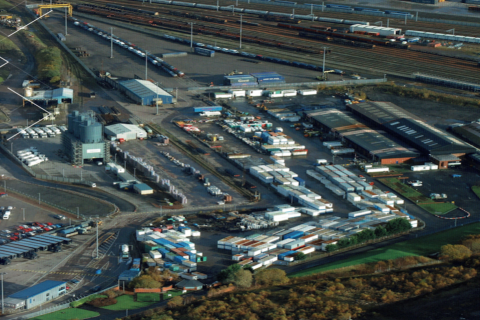New access charges for UK high speed line

Access charges are going up on the dedicated high speed line connecting London and the Channel Tunnel. But freight traffic gets a break, thanks to the regulator. HS1 Limited, the company that operates the line, had proposed increases of over 40 per cent, but the independent regulator, the Office of Rail and Road (ORR) has stepped in and capped charges. Freight and passenger operators will still pay more over the next five years, but at 12 per cent for freight, the increase is still far ahead of inflation.
For freight operators, it has always been considered a fast but expensive way to get goods to and from the Channel Tunnel, into London and forward to the rest of the UK. The 67-mile (109km) high speed track, originally opened in two stages in 2003 and 2007, is owned by the UK Government and operated by HS1 Ltd, which holds a concession agreement for 30 years for operation until the end of 2040.
Now, the independent oversight body, the ORR, has reviewed the budget proposals by the company, covering Control Period 3, which starts on 1 April this year. Confusingly, since the line is set aside from the rest fo the national network, the Control Periods are at variance with Network Rail’s calendar (which entered its own CP6 on 1 April last year. However, the Periodic Review, as the ORR document is called, makes wide-ranging requirements of the operator company, and moderates many of the revenue demands.
Access charges
The highest rises will be for international passenger traffic – almost exclusively Eurostar services – which will be charged an extra 19 per cent. Domestic passenger services will pay an extra 16 per cent, while freight access charges rise 12 per cent. The new freight charge will be £8.48 per train-km (€9.98). HS1 had proposed an increase from £7.54 per train-km to £13.10 per train-km.
The overriding aspect of this review has been how to catch up historic underfunding for long-term renewals. The ORR report says High Speed 1 is a valuable public asset that must be properly maintained. “We have sought to ensure the assets can be kept in good condition in the long-term at lowest possible cost. This is important to make sure that operators and, in turn, passengers and freight users get a good deal now but not at the expense of future generations.”
The charges are in place to cover the anticipated annual maintenance of the line, estimated at almost £26m (€30.6m). In addition to reviewing the proposed charges, the ORR has put some conditions on the operation of the infrastructure asset, designed to maximise availability and reliability.
Heightened monitoring
According to the Periodic Review document, these include reviewing the approach to asset life and project management costs. “Given the increase in funding HS1 Ltd will receive and the expected ramp-up in work to renew the railway,” says the ORR, “we will be reviewing and heightening our monitoring and reporting of HS1 Ltd’s progress to ensure that the plan is delivered well and at good value.”
The ORR document also looks far into the future, beyond the end of the 30-year concession. ”High Speed 1 is a valuable public asset and our role is to provide independent assurance that the line will be kept in good condition over the long-term at the lowest possible cost,” said John Larkinson, ORR Chief Executive. “This is important to make sure that train operators and, in turn, passengers and freight users get a good deal now but not at the expense of future generations.”
The line’s operators say they are freight-ready, but whether predicted Brexit delays at ports will make the line a more attractive option for freight operations remain to be seen. What’s certain though is that the HS1 will remain a premium asset, and priced accordingly.
You just read one of our premium articles free of charge
Want full access? Take advantage of our exclusive offer





